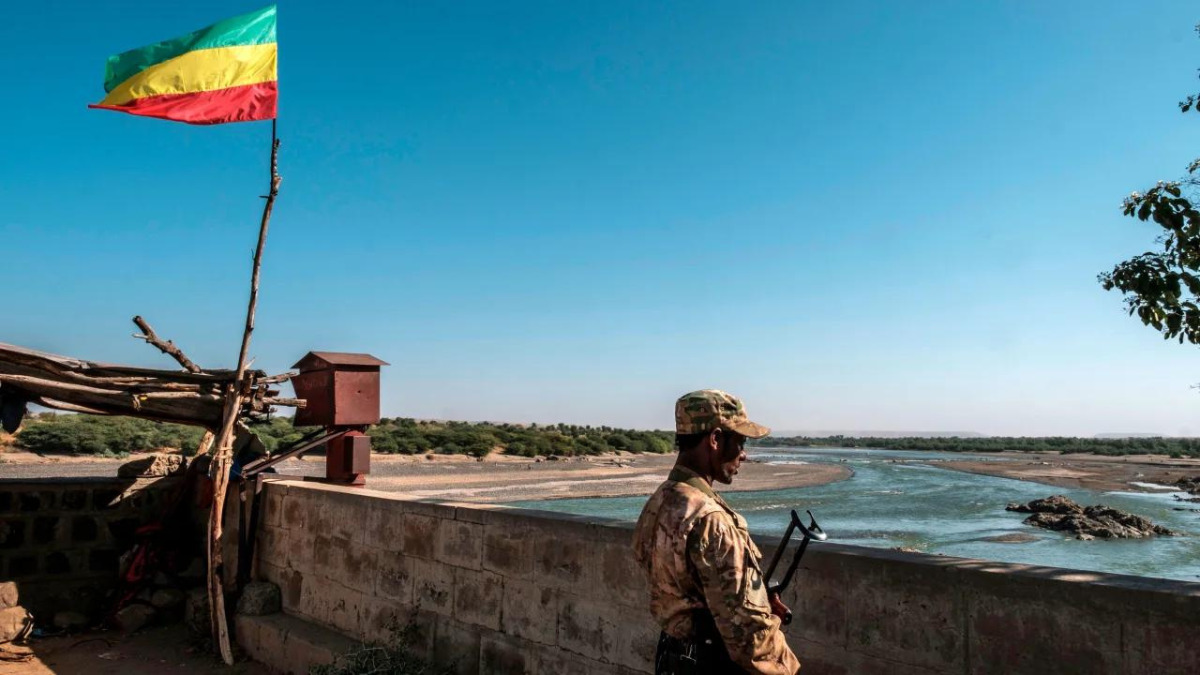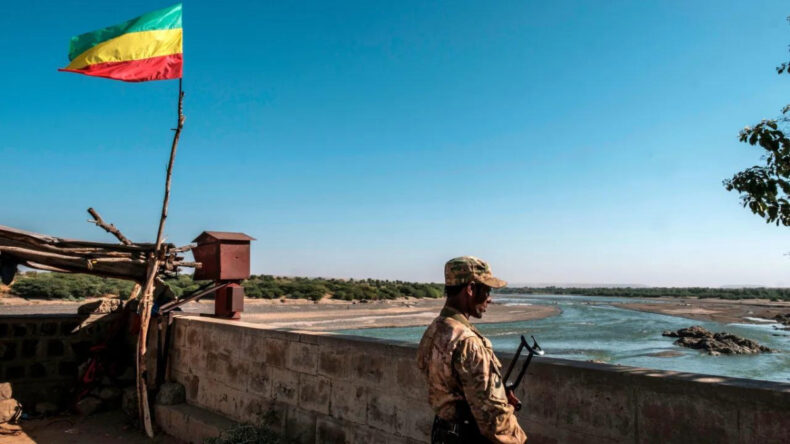According to the foreign ministry, Ethiopia, a rapidly developing economy in Africa, has expressed its desire to become a member of the BRICS group, which consists of emerging markets.

Goldman Sachs economist Jim O’Neill introduced the acronym BRIC in 2001 to highlight the emergence of Brazil, Russia, India, and China as significant economic powers. The first summit of the BRIC nations took place in Russia in 2009. Subsequently, South Africa became a member of the group in 2010.
According to the state-run news agency ENA, the foreign ministry spokesman, Meles Alem, stated that they anticipate a favorable response from the BRICS nations regarding the request made by Ethiopia. According to the spokesman, Ethiopia will maintain its collaboration with international organizations that can safeguard its interests.
Despite having the second-largest population in Africa, Ethiopia’s economy is ranked 59th globally by the International Monetary Fund (IMF), which is significantly smaller than that of the smallest BRICS member, South Africa.
Argentina, ranked as the 23rd-largest economy globally, announced last year that it had obtained China’s official backing to become a member of the group. The BRICS bloc is regarded as a robust emerging-market alternative to Western-dominated institutions.
South Africa has confirmed that it will proceed as scheduled to host the upcoming summit in August, dismissing rumors that the event might be relocated to a venue where Russian President Vladimir Putin would not face potential arrest regarding allegations of war crimes.
The combined population of BRICS countries exceeds 40% of the world’s total population, and their collective contribution to the global economy stands at approximately 26%.
BRICS and Ethiopia
BRICS is an acronym representing a group of emerging market economies: Brazil, Russia, India, China, and South Africa. The BRICS countries, despite their geographical diversity, share common characteristics such as substantial populations, significant land areas, and expanding economies.
Collectively, BRICS countries account for a significant portion of the world’s population and have a considerable impact on the global economy. BRICS countries engage in regular dialogues, summits, and collaborations to enhance cooperation and address common challenges. They focus on issues such as trade, investment, finance, technology, infrastructure, and sustainable development.
BRICS nations hold considerable geopolitical influence due to their economic power and growing international presence. The BRICS group is seen as an alternative voice and counterbalance to Western-dominated institutions, advocating for more equitable and inclusive global governance. They often collaborate with other regional and international organizations to address shared concerns and pursue mutual interests.
Ethiopia aims to leverage its membership in BRICS to enhance its economic growth and development. By aligning itself with other emerging economies, Ethiopia may seek access to new markets, investment opportunities, technology transfer, and knowledge sharing, which can contribute to its goal of becoming a middle-income country.
Becoming a member of BRICS would enhance Ethiopia’s political influence on the global stage. It can provide the country with a platform to engage in discussions and decision-making processes on international issues, enabling it to present its interests and perspectives alongside other influential emerging economies.
BRICS represents a significant force in South-South cooperation, promoting collaboration and solidarity among emerging economies. Ethiopia, as an African nation, may see value in aligning itself with this platform to strengthen ties with other BRICS countries and foster regional integration and cooperation within Africa.
By joining BRICS, Ethiopia may gain access to development funding, technical assistance, and capacity-building programs offered by the group, which can support its efforts in infrastructure development, industrialization, and other priority areas.













